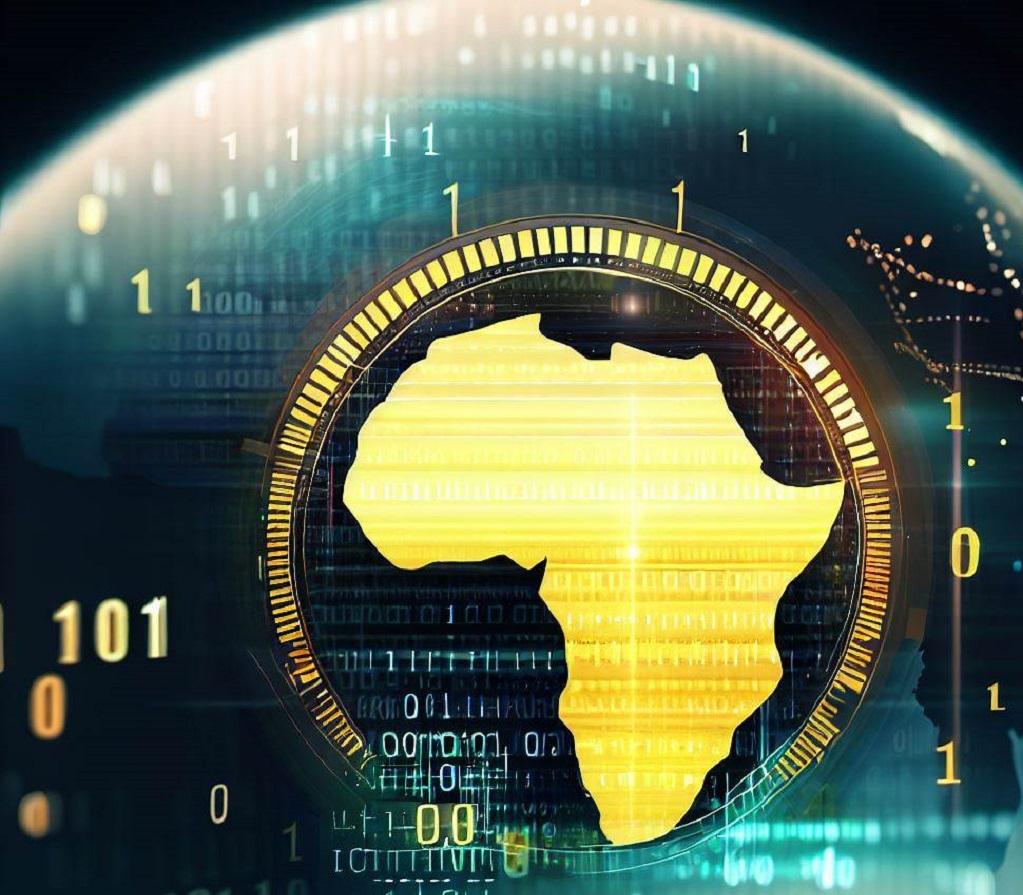- Africa only accounts for one per cent of the global digital economy. The US, China, and Asia hold dominant positions at 68 per cent, 22 per cent, and 27 per cent respectively.
- Ralph Mupita, President and CEO of MTN cites untapped opportunities in Nigeria’s digital economy, tipping that its potential will double by 2050 to $145 billion.
- Businesses must adapt to Africa’s evolving digital economy and embrace key trends to seize the vast opportunities in the continent.
There is a substantial gap between the digital economy of developed and developing countries in Africa. At the moment, Africa makes up one per cent of the global digital economy, while the US, China, and Asia occupy the top three spots with 68 per cent, 22 per cent, and 27 per cent of the total. This demonstrates how crucial it is for Africa to close the digital divide and capitalize on its growth potential, notes Ralph Mupita, President and CEO of MTN.
Addressing Nigeria’s business leaders at the Businessday CEO Forum, Mupita called for action and the formulation of a comprehensive blueprint to build a robust digital economy capable of propelling Nigeria to become the world’s fifth-largest economy.
Opportunities in digital economy
Mupita highlighted vast untapped opportunities within the digital economy. He said Nigeria’s Internet Gross Domestic Product (iGDP) stands at a modest six per cent but it can double by 2050, hitting $145 billion.
While lauding Nigeria President Bola Ahmed Tinubu’s administration for its commitment to fostering ICT and digital economy, Mupita is urging both the government and business leaders to adopt policies that facilitate inclusive growth.
Mupita emphasized the need for a well-defined spectrum roadmap that ensures the allocation of sufficient resources to meet the skyrocketing demand for mobile services. He advocated for expeditious access to mid-band spectrum, a critical requirement for the future of low-latency 5G technology, as well as access to sub-1 GHz spectrum to facilitate the provision of widespread rural mobile broadband services.
Additionally, he cited digital skills gap in Nigeria and across Africa, but called for urgent digital skills development programs. “The potential is immense. The path is clear,” Mupita stated in concluding his presentation.
He emphasized that the future of Nigeria lies in its digital economy and called for strategic intent, collaborative effort, and a shared vision to seize the opportunities presented by global economic shifts and technological advancements. Mupita firmly believes that Nigeria’s digital economy has the power to drive economic growth, create jobs, and foster innovation.
Key trends shaping virtual economy
As Africa’s urbanization intensifies, businesses have a unique opportunity to meet evolving needs of urban dwellers. Experts project that cities across the continent will rise from 68 to 85 by 2025. These cities will be home to nearly half of all Africans, and there is a significant potential for further growth. Urban areas offer better connectivity, access to innovative technologies, and high spending power, elements that drive economic growth and social inclusion.
Africa’s young and increasingly affluent population is driving a surge in consumption. The working-age population is set to rise. Data shows that Africa is the only continent that will experience decreasing dependency ratio globally. The trend will likely lead to an increase in people’s spending power.
With over 350 million middle-class individuals in Africa, excluding South Africa, the growing middle class is spending over $400 million per day. By 2030, Africa is projected to be home to over 1.7 billion consumers, with significant consumer expenditure.
Investing in Mobile app solutions
Mobile devices are the primary means of internet access in Africa. Today, about 60 percent of the continent’s population use mobile phones to connect to the internet. By 2025, the number of mobile subscribers in Sub-Saharan Africa is expected to reach 623 million. This, with increasing usage of smartphones will help power e-commerce.
The region will witness substantial growth in the number of internet users, representing a significant share of the global total. Investing in mobile app development and tailored solutions can tap into this expanding market.
Africa’s informal sector plays a significant role in the continent’s economy. Currently, majority of workers own mobile phones for both personal and business use. Successful ventures in the African internet economy are increasingly addressing the challenges facing by informal sector businesses and workers. Mobile money adoption, exemplified by Kenya, Ivory Coast, and Mali, demonstrates the importance of accessible services in Africa’s economies.
Growing developer population
Africa’s technology ecosystem and innovation hubs are fostering a young and growing developer population. The rise of local developer talent is transforming industries across the continent. With nearly 700,000 developers concentrated in Egypt, Kenya, Morocco, Nigeria, and South Africa, Africa’s skills pool is growing.
Informal education channels, gender diversity, government support, and on-the-job training are enhancing software development skills.
As Africa’s digital economy evolves, businesses will have to stay informed and adapt to these key trends to tap opportunities.
